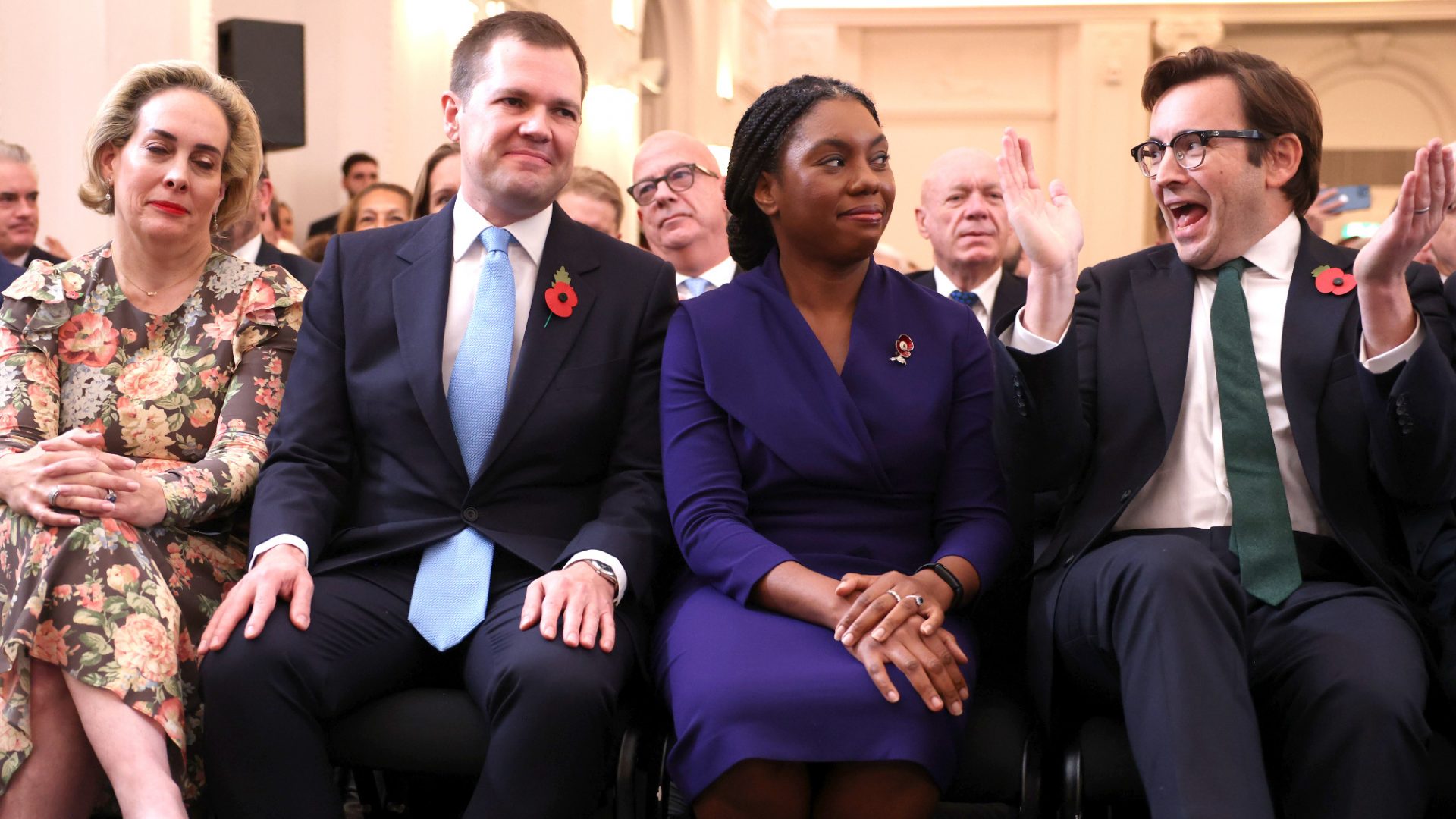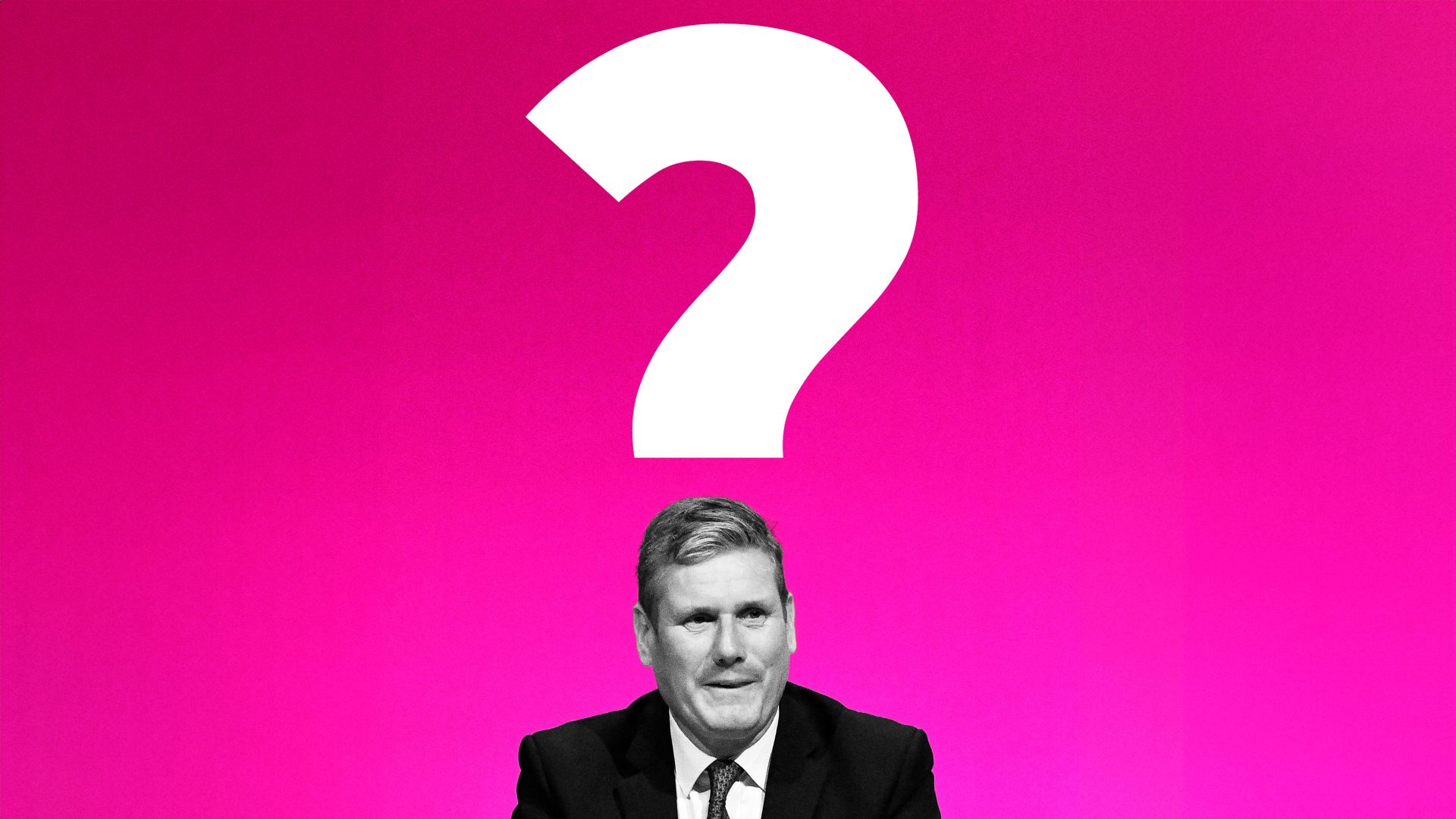One candidate pretended to be Nigel Farage. The other pretended to be Margaret Thatcher. One candidate promised to quit the European Convention on Human Rights. The other stood on a vague set of principles to be concretised later. One candidate endured hours of grilling by the media. The other candidate didn’t. So guess who won?
The lesson of the Tory leadership contest should be clear: if your party no longer knows what it stands for, and its parliamentary cadre is full of second-rate careerists, don’t expect the members to go picking a visionary or a strategist.
Kemi Badenoch won because what her opponents call the “liberal” wing of the Tory Party – concentrated in the big cities and south-east England – outvoted those who wanted to save themselves from oblivion in every town north of Watford by going full Farage. What she does next will be dictated not by any particular vision or policy platform, but by the balance of forces on the right and far right of British politics.
The man calling the shots is Nigel Farage. He has created a right wing populist party from scratch that is now polling 20% and is unlikely to evaporate anytime soon. There is money behind Reform, and it is prepared to break every rule in the Westminster playbook to solidify that support into a force that can break the Tory Party.
In turn, the energy behind the far right surge is clear: one in five Reform voters believes the racist riots of early August were justified; 78% think multiculturalism has made things worse for Britain, while 83% think every asylum seeker arriving in Kent should be immediately deported.
Reform, in short, is a racist insurgency with a plebeian ethos, a left-ish economic programme and a working-class base. To defeat it, the Tories are going to have to make either a drastic shift to the right on race, or a drastic shift to the left on economics.
Robert Jenrick, with his dog-whistles about a cover-up in the Southport murders case and his stated intent to leave the ECHR, offered a clear lurch to the right. By choosing Badenoch, with her investment banker husband and allies among the Spectator set, the Tory membership refused that offer.
I think had James Cleverly not sabotaged his own campaign, he would have won against Jenrick for the same reason. A majority of Tory members do not want to become Ukip lite, but want to be Tories. And that’s where Badenoch’s problems begin.
For the legacy of Toryism is a triple negative. Thatcher destroyed the social cohesion of the old Britain – the Britain that Reform’s nostalgics yearn for. David Cameron and George Osborne inflicted years of needless austerity, severely damaging the NHS and council services. And then Boris Johnson engineered a hard Brexit deal that baked stagnation into the UK’s economic model.
The solution, on the evidence of Badenoch’s wafer-thin programme of “Renewal”, is a smaller state, “family values” and an unapologetic rollback of equalities legislation. It is not that she played down the economic strategy needed to mitigate stagnation, poverty and social atomisation – she simply does not have one.
And that is why Labour knows it is on a winner in the first round of the political battle it must fight with Badenoch. Faced with provable fiscal sabotage by the Tory government Badenoch was part of, Rachel Reeves will simply ask her: “what would you do?”
However well Badenoch’s verbal vacuity about self-reliance might play in the Tory heartlands of Hampshire, it means nothing to the people angry about jobs, crime, public services and the cost of living in the Red Wall.
Badenoch, for all her anti-woke diatribes, is the wrong kind of Tory rightist. She will look and sound good on TV; she might rile a few black Labour MPs with her unflappable indifference to structural racism; she will no doubt assemble a fan club of 20-year-old men wearing pocket squares around Tufton Street. But she will lead the Tories to defeat, and quite possibly eclipse by Reform.
For which I, as a Labour supporter, will be grateful. But I am genuinely worried by the ideological surrender to Faragism I’m hearing on the other side of the Tory Party.
Bashing Islam has become an acceptable subject of bar-stool conversation in this milieu. And some of the attacks on Badenoch from Jenrick’s supporters – “brain doesn’t switch on until 12 noon”, “late for meetings”, “routine laziness and disorganisation”– shamelessly traded on anti-African stereotypes.
Tragically, not a single one of the candidates for Tory leader had the courage to start from what is wrong with the Britain they’ve helped to create. Nobody led with an economic alternative to stagnation. Nor were any of them prepared to attempt a rerun of Johnson’s “Global Britain” hubris, despite all of them signing up to it in the 2021 Integrated Review.
Those with the big ideas – Johnson and Liz Truss – have already crashed and burned. As a result, the modern Tory Party is led by people of low political achievement and small ambition. And what outsiders don’t often realise is that, in the milieu Badenoch belongs to, this can be enough. For Labour, being out of power is a moral and financial agony. For the Tories, in a world where there’s always money, it’s an inconvenience.
From the UnHerd Club in Old Queen Street, to the Spectator podcast, to the think tank offices on Tufton Street and the broadcast studios on Millbank is a mere 20-minute walking tour. You can be big in this world, and it has its rewards, as Badenoch just found out.
Hang around long enough, charm enough people and say just the right amount of outrageous stuff and advancement can be spectacular. But as the Tories are about to find out, it’s not a route back to power.




